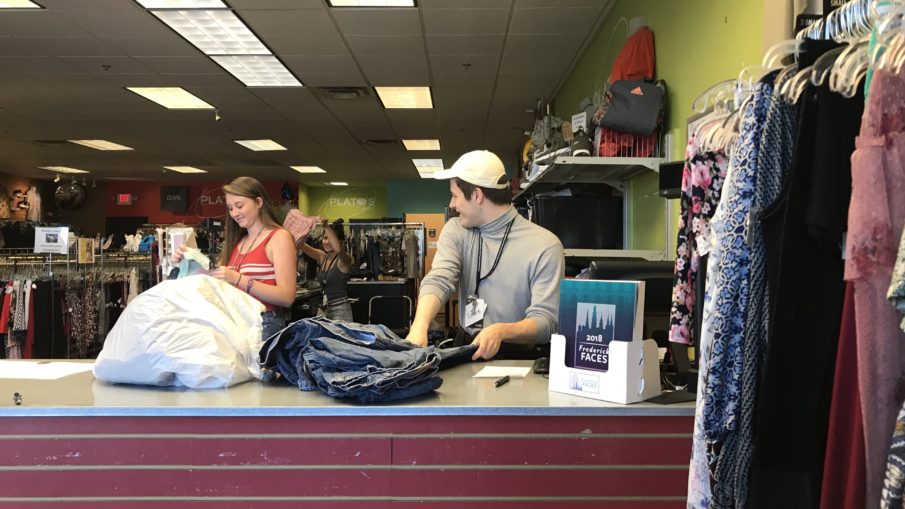Poshmark is a virtual resale store that is changing the thrifting game. Poshmark and other stores like it, such as Depop have risen to popularity in recent years, especially among teenagers and young adults.
“I think people like having the joy of shopping at their fingertips, so app versions of resale stores make perfect sense,” said Elise Wilson, a first-year FCC student. “People – especially millennials – don’t like to have to leave the comfort of their bed to get what they want. We all like convenience.”
The sites allows users to buy and sell clothing by hosting their own online boutique. Sellers can advertise and price their products as if they are their own retailers, and buyers are able to sift through products using price, size, and other kinds of filters.
“When I buy things,” said Andie Hoffrichter long time Posher. “I choose to do so based on either the brand or the price. The filters are really helpful to find what you’re looking for”
The statistics prove Wilson’s point. According to Poshmark’s 2013 report, over 1.5 million items had been sold at the time. Users, or as they’re called, “Poshers,” use the site to both make a profit and clear out their unwanted items.
“I mostly use the app to sell stuff for spring cleaning,” said Hoffrichter, “I was overwhelmed by how much clothing I had, so I felt like I needed to purge it.”
Selling items on Poshmark is popular not just for storage purposes, but some also use the site to start their own businesses. Sunny and Curated, an online boutique started by FCC graduate Courtney Cairns is a resale store that operates entirely on Poshmark and Instagram. Sunny and Curated is focused on selling name-brand and vintage clothing at low prices. On the store’s Instagram page, Cairns says “I love a deal, I love getting people a deal.” Her ultimate goal is to be a local pop-up shop, but for now, social media and resale apps are the backbones of her business. Other Poshmark shop-owners use the site as a main source of income among other jobs and enjoy the flexibility of being small business owners.
“I love the fact that I can be my own boss with it,” said Posher Lizzie West, a popular store owner on the site. “However much effort I put in is what I get back out. If I don’t have as much time one week to work on it, it’s no sweat for me to put it aside and come back to working on it again when I’m not as busy with my other jobs.”
However, affordability is not all that draws consumers to resale. Stephanie Smith, owner of Plato’s Closet for the past two years says that she feels the resale business cater to a more conscious generation.
“I love the concept of recycling, I love the concept of upcycling, I love the concept of not buying everything new,” she says. “I think there are people who, living conscientiously really do like the idea of not everything being brand new.”
Individuality can also drive buyers to resale stores or apps.
“I think we get customers who like the idea of unique things,” said Smith. “Things outside of that cookie-cutter mold. I think we also get people who also do stuff with them they like to do stuff with them, they like to get it at that lower price so then they can make it their own and do their own thing for less than they would pay for it at the mall.”
While some may see these resale apps as a passing fad, their supporters think otherwise.
“I definitely see Poshmark as a lasting trend that will grow even more popular,” said West. “The ease of shopping online will never go out of style.”

